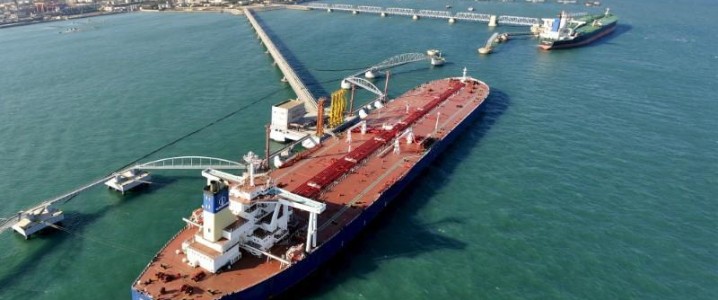
Oil prices are facing volatility as tensions rise over potential new sanctions targeting Russia. According to reports, President Donald Trump is contemplating sanctions on Russia’s so-called “shadow fleet” of oil tankers if Moscow does not agree to a peace deal with Ukraine by Friday. This consideration comes as the Trump administration grapples with the ongoing conflict and the implications for global oil markets.
Despite a history of threats regarding sanctions, the Trump White House has not yet enacted new restrictions on Russia since his administration began. The Russian economy remains largely isolated from Western markets, while its reliance on key BRICS nations, particularly China and India, has been increasing. Both countries have indicated they will not alter their stance on Russian energy, even in the face of potential secondary sanctions from Washington.
The Financial Times highlights that the shadow fleet consists of oil tankers with complex ownership structures that evade Western services such as insurance and logistics. This complicates efforts to penalize the owners directly. Nevertheless, recent attempts to sanction these vessels have shown some effectiveness, prompting discussions within the White House about expanding sanctions as a means of increasing pressure on Russia.
According to two individuals familiar with the matter, the prospect of sanctions on the shadow fleet is considered a relatively straightforward method to apply additional pressure. A third source close to the administration confirmed that broader sanctions options, including those targeting the fleet, are currently under review. The existing sanctions from the Biden era already encompass over 200 named Russian crude, chemical, and product tankers.
Reports suggest that Trump has been hesitant to broaden these sanctions in hopes of facilitating a ceasefire in Ukraine. Russia has until Friday to respond positively, according to sources cited by the Financial Times. If these new measures are enacted, they would align with similar efforts by the European Union. Last month, the EU added over 100 ships to its sanctions list, raising the total to 415.
Despite these efforts, the sanctions have not deterred Russia’s military operations, which President Vladimir Putin continues to refer to as a “Special Military Operation” in Ukraine. The options available to the West appear limited, given the unprecedented levels of sanctions already imposed on Russia. Ultimately, Russia’s demands focus on significant territorial concessions from Ukraine and a binding commitment from Kyiv to refrain from joining NATO. However, the government led by President Volodymyr Zelensky has consistently rejected these terms.
As the deadline approaches, the international community watches closely to see how the situation will unfold and what potential impacts these sanctions could have on the global oil market and geopolitical stability.






